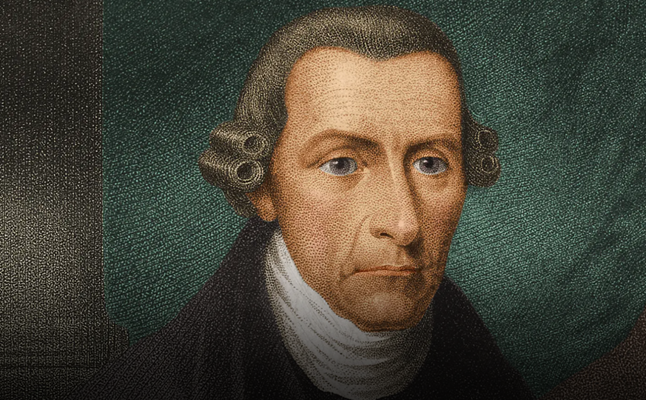Patrick Henry was an American politician, planter, and renowned orator. He was also a great patriot and signer of the Declaration of Independence. As a founding Father, he served as the first and sixth post-colonial Governor of Virginia from 1776-1779 and 1784-1786.
He was a native of Hanover County, Virginia, and was primarily educated at home. He failed at several business ventures and became a lawyer through self-study.
He was a staunch resister of a strong centralized government and often led the way in speeches and military ventures to bring freedom from Britain to the colonies.
He was named after his Uncle who was an Anglican minister and until his death (death of his Uncle) he often referred to himself as Patrick Henry Jr.. Religion played a key role in Henry’s life. While a child, the Great Awakening reached Virginia. His father’s mother often took him to hear Presbyterian ministers and those associated with the revival. He learned that it is not enough to save one’s own soul; one should help save society. He also learned that oratory should reach the heart, not just persuade based on reason alone. His oratory followed in the fashion of these revival preachers.
He was critical of the State of Virginia because he felt that slavery and lack of religious toleration had retarded its development. You must remember that Anglicanism was the state sponsored (British) mandated religion in the colonies. The Anglican pastors were paid by the King or local governments and were in a place of mandatory adherence, though it would be hard to check up on each congregant to make sure they were practicing their faith.
He told the Virginia Ratifying Convention in 1788, “That religion or the duty which we owe to our Creator, and the manner of discharging it, can be directed only by reason and conviction, not by force or violence, and therefore all men have an equal, natural and unalienable right to free exercise of religion according to dictates of conscience, and that no particular religious sect or society out to be favored or established by law in preference to others.”
At the Second Virginia Convention, which was convened at St. John’s Episcopal Church in Richmond on March 20, 1775, Henry offered amendments to the petition by the Planters of the Colony of Jamaica, which was being recommended by the Convention to adopt. He defended his amendment with his most famous quote:
If we were base enough to desire it, it is now too late to retire from the contest. There is no retreat but submission and slavery! Our chains are forged! Their clanking may be heard on the plains of Boston! The war is inevitable, and let it come! I repeat it, sir, let it come.
It is in vain, sir, to extenuate the matter. “Gentlemen may cry, ‘Peace, Peace,’ but there is no peace. The war is actually begun! The next gale that sweeps from the north will bring to our ears the clash of resounding arms! Our brethren are already in the field! Why stand we here idle? … Is life so dear, or peace so sweet, as to be purchased at the price of chains and slavery? Forbid it, Almighty God! I know not what course others may take; but as for me, give me liberty, or give me death!”
What a brave patriot!
I guess we can conclude that Patrick Henry was not shy about his faith!
Until next time…
